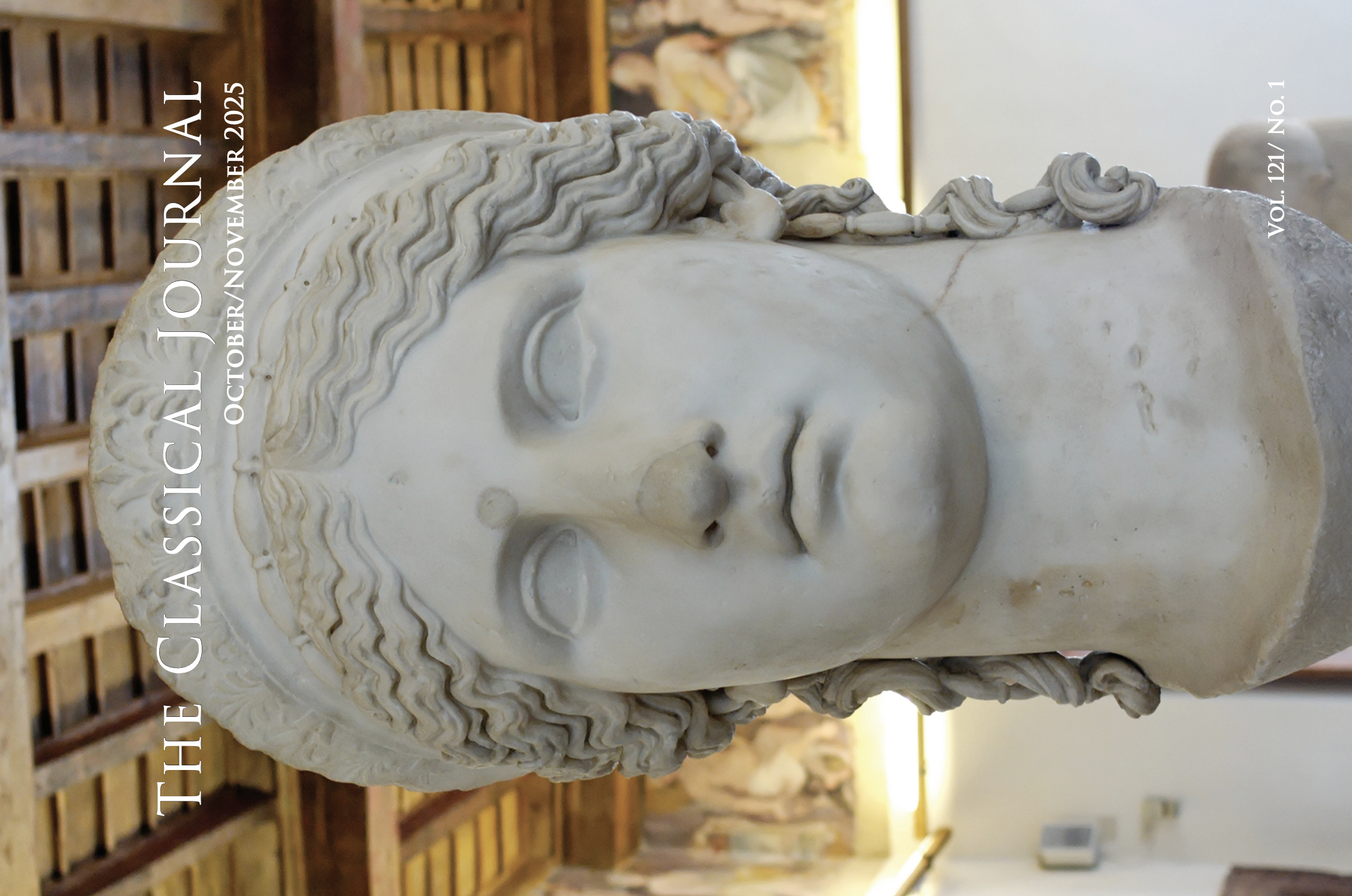The following articles are contained in CJ
120.1
Abstracts of Articles
Anticipating Afterlife: Metapoetic Reading of the "Revival" Prologue of Plautus' Casina
A part of the prologue of the Casina which apparently records the play’s reperformance sometime after Plautus’ lifetime has been universally classified as a post-Plautine interpolation. Closer inspection, however, reveals not only a system of imagery throughout the prologue, but also its numerous thematically relevant correspondences with the imagery and the plot of the play. The correspondences are read as metapoetic allusions to the play’s revival and attributed to a single author, with the hypothesis that it might be Plautus himself. The “revival” prologue is interpreted as Plautus’ humorous anticipation of the reception of one of his last plays and the afterlife of his comic legacy.
Ancient Greek and Roman Crip Lit
The study of disability in the ancient world is a burgeoning field and is rapidly garnering interest outside of academia, as well. This brief article argues that we can expand our engagement with the topic—and with ancient literature broadly—by acknowledging the disabled status of some Greek and Roman authors, many of whom are mainstays of our traditional literary canon. Disability-informed approaches to themes like embodiment and phenomenology can contribute to a more complex and grounded understanding of ancient life and experience, as well as deepen our understanding of topics like Stoic philosophy, ancient temporalities, Greek tragedy and the discourse of disability in the ancient world.
Provinciae Baeticae Maurorum Civitates Dono Dedit: Otho’s Largesse and the Means of Civil War in Tacitus, Histories, 1.78.1 & 2.58
According to Tacitus, Otho gave some Maurian communities (Maurorum civitates) as a gift to Baetica to obtain the support of the province in the civil war (Hist. 1.78.1). The details of the measure remain obscure and it has not yet been satisfactorily explained. In this article I present a new interpretation of Otho’s largitio from a political and administrative point of view, contextualising it within Tacitus’ account of the Straits war front (Hist. 2.58-59.1). I analyse which communities were affected by the measure, how the emperor could give formal validity to his statement and how the news about it could be spread throughout Baetica even though all Hispania was controlled on behalf of Vitellius by the consular legate Cluvius Rufus. Finally, I examine Tacitus’ narrative background in this episode of the civil war.


